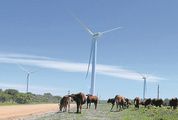JOHN Templeton, founder of the Templeton mutual funds, once had an edge in foreign investment; now there are hundreds of foreign investment funds grazing for greener grass, investing even in Mongolia and Burma. Formerly "emerging" markets such as Brazil are today ho-hum for the high-risk crowd.
Likewise, a trader such as George Soros, or a growth investor such as T Rowe Price got to their perches by exploiting lack of information or by investing in assets others shunned due to perceived risk.
Sometimes, investors get lucky. Not "lucky" as in making the right trade at the right moment, but in the sense of their entire money careers. Was Warren Buffett destined to get rich, or did he simply have the right combination of skills and approach for the time in which he built his name? After all, even he admits to periods in which "the market" doesn’t make sense to him. The big investors of 2000, at the heights of their careers, openly worried about the size of US debts, both public and private.
There are great traders who burn out and retire, such as Fidelity’s Peter Lynch. Traders whose approaches go in and out of style until suddenly, years later, they seem to work again.
The takeaway is that you need not be "right" in your current strategy — or even have a strategy — to win. But you have to be willing to roll with the illogic of the markets and take profits where they happen, time and time again.
It also helps if you get lucky. Billionaires can spend a decade in cash, happily feeling baffled. Unfortunately, the rest of us can’t. From an article at Forbes.com by Mitch Tuchman

Street Dogs
JOHN Templeton, founder of the Templeton mutual funds, once had an edge in foreign investment; now there are hundreds of foreign investment funds grazing for greener grass, investing even in Mongolia and Burma. Formerly "emerging" markets such as Brazil are today ho-hum for the high-risk crowd.
Likewise, a trader such as George Soros, or a growth investor such as T Rowe Price got to their perches by exploiting lack of information or by investing in assets others shunned due to perceived risk.
Sometimes, investors get lucky. Not "lucky" as in making the right trade at the right moment, but in the sense of their entire money careers. Was Warren Buffett destined to get rich, or did he simply have the right combination of skills and approach for the time in which he built his name? After all, even he admits to periods in which "the market" doesn’t make sense to him. The big investors of 2000, at the heights of their careers, openly worried about the size of US debts, both public and private.
There are great traders who burn out and retire, such as Fidelity’s Peter Lynch. Traders whose approaches go in and out of style until suddenly, years later, they seem to work again.
The takeaway is that you need not be "right" in your current strategy — or even have a strategy — to win. But you have to be willing to roll with the illogic of the markets and take profits where they happen, time and time again.
It also helps if you get lucky. Billionaires can spend a decade in cash, happily feeling baffled. Unfortunately, the rest of us can’t. From an article at Forbes.com by Mitch Tuchman




















Change: -0.32%
Change: -0.38%
Change: -1.59%
Change: -0.32%
Change: 0.63%
Data supplied by Profile Data
Change: 1.71%
Change: -0.03%
Change: -0.32%
Change: 0.00%
Change: 0.02%
Data supplied by Profile Data
Change: -1.32%
Change: -1.11%
Change: -1.85%
Change: -1.77%
Change: -0.46%
Data supplied by Profile Data
Change: -0.79%
Change: -0.51%
Change: -0.32%
Change: -0.18%
Change: 1.34%
Data supplied by Profile Data